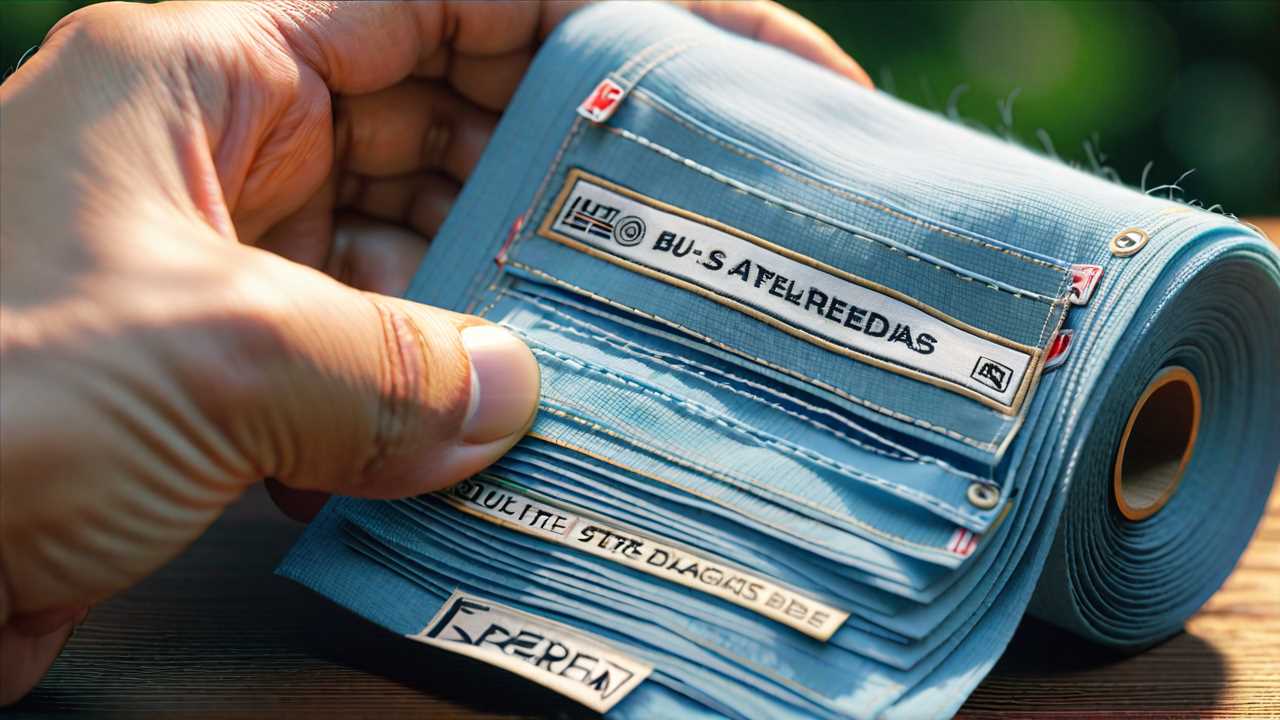
Have you ever wondered if the clothes you wear are ethically sourced? Ensuring that your clothing aligns with your values goes beyond just checking the price tag. By exploring the world of ethical fashion, you can make conscious choices that support fair labor practices and sustainable production methods. But where do you start? Let's unravel the complexities of ethical sourcing together, shedding light on practical steps you can take to make a positive impact through your wardrobe choices.
Understanding Ethical Fashion Certifications
To make informed decisions when purchasing clothing, familiarize yourself with various ethical fashion certifications that guarantee responsible sourcing practices are in place. Ethical fashion certifications serve as valuable indicators that a brand is committed to ethical and sustainable practices.
Look for certifications like Fair Trade, Global Organic Textile Standard (GOTS), and B Corp when shopping for clothing. Fair Trade guarantees fair wages and safe working conditions for workers, while GOTS certifies organic fibers and environmentally friendly production processes. B Corp certification signifies a company's dedication to social and environmental responsibility.
Understanding these certifications empowers you to support brands that align with your values. By choosing clothing with recognized ethical fashion certifications, you can contribute to positive changes in the fashion industry.
Remember to look for these certifications on clothing labels or websites. Prioritize brands that value transparency and accountability in their sourcing practices, ensuring that your purchases make a positive impact on both people and the planet.
Tips for Researching Brand Practices
When investigating brand practices for ethical sourcing, delve into company reports and sustainability initiatives to gain valuable insights into their supply chain transparency. Start by visiting the brand's official website and look for sections dedicated to sustainability, corporate social responsibility, or ethical sourcing.
Companies that are transparent about their practices often provide detailed reports on their website, outlining their commitments to fair labor practices, environmental sustainability, and supply chain traceability. Additionally, check if the brand is affiliated with any reputable ethical fashion certifications or initiatives that promote fair labor and environmental protection.
It's also helpful to seek information from independent sources such as ethical fashion blogs, industry reports, or non-profit organizations that evaluate brands based on their ethical practices. Social media platforms can be a useful tool to see how brands engage with their customers and respond to inquiries about their sourcing practices.
Ways to Support Fair Trade Initiatives
Discover effective ways to actively support fair trade initiatives within the fashion industry by engaging with brands that prioritize ethical sourcing practices and promote transparency in their supply chains. One impactful way to show your support is by choosing to purchase clothing from brands that hold certifications from recognized fair trade organizations.
Look for labels such as Fair Trade Certified, Global Organic Textile Standard (GOTS), or Fair Wear Foundation when shopping for garments. By doing so, you can guarantee that your purchases directly contribute to improving the livelihoods of workers in the fashion supply chain.
Another way to champion fair trade initiatives is by spreading awareness. Share information about fair trade practices and the importance of ethical sourcing with your friends and family. Engage in discussions on social media platforms to educate a wider audience about the benefits of supporting fair trade in the fashion industry. Every voice matters in creating a more sustainable and ethical future for fashion.
Sustainable Materials to Look For
Consider exploring clothing made from sustainable materials such as organic cotton, recycled polyester, or Tencel for a more eco-friendly wardrobe.
Organic cotton is grown without harmful pesticides, reducing environmental impact and promoting healthier soil.
Recycled polyester, made from recycled plastic bottles, helps divert waste from landfills and lessens the reliance on virgin polyester production.
Tencel, a fiber made from sustainably sourced wood pulp, boasts a closed-loop production process, minimizing water usage and chemical waste.
Frequently Asked Questions
How Do I Know if a Brand's Ethical Certification Is Legitimate?
To confirm a brand's ethical certification, research the certifying body's reputation. Verify if the certification aligns with recognized standards like Fair Trade or GOTS. Look for transparency in the brand's supply chain. Trust but verify.
When looking to research brand practices, consider using apps like Good On You. It offers insights on a brand's sustainability, labor practices, and ethics. Take control of your choices and make informed decisions for a better world.
Can I Directly Support Fair Trade Initiatives as a Consumer?
You can directly support fair trade initiatives as a consumer by choosing to buy from brands that are certified fair trade. Look for labels like Fair Trade Certified or Fair Trade Federation to guarantee ethical sourcing practices.
What Are Some Lesser-Known Sustainable Materials Used in Clothing?
You'd be surprised by the variety of sustainable materials in clothing. Look out for Tencel, made from eucalyptus, or Piñatex, from pineapple leaves. These innovative options offer eco-friendly alternatives to traditional fabrics.
To find information on a brand's treatment of workers, check their website for sustainability reports, look for certifications like Fair Trade, and research reviews or news articles. Contact brands directly to ask specific questions.
 SportsHollywoodLifestyleFashionHome & GardenTrendsPrivacy PolicyTerms And Conditions
SportsHollywoodLifestyleFashionHome & GardenTrendsPrivacy PolicyTerms And Conditions
